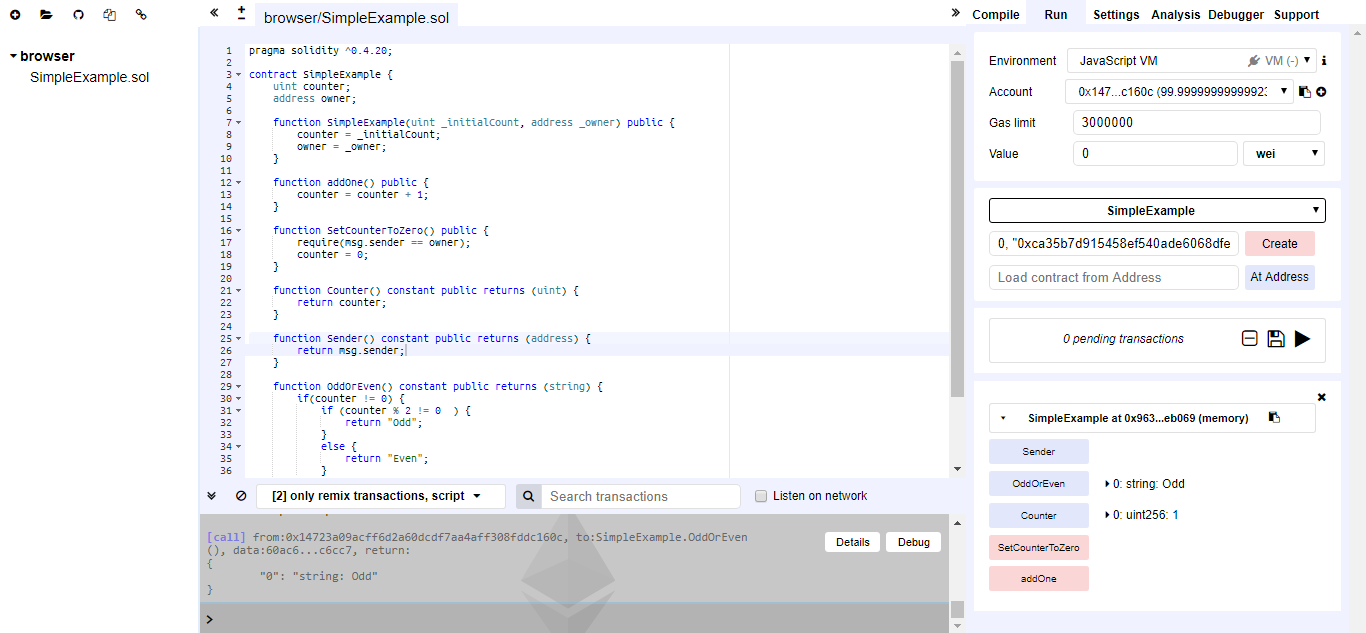Solidity is the go-to language for Ethereum smart contracts. It's object-oriented, statically typed, and designed specifically for the Ethereum Virtual Machine. With syntax similar to JavaScript, it's familiar yet powerful for blockchain development.
Solidity's key features include value and reference data types, functions with visibility specifiers, and built-in error handling. It supports contract-oriented programming, inheritance, and events for logging. These elements form the backbone of smart contract development on Ethereum.
Language Fundamentals
Solidity Basics
- Solidity is an object-oriented, high-level language for implementing smart contracts
- Statically typed language designed to target the Ethereum Virtual Machine (EVM)
- Follows a contract-oriented programming model
- Supports inheritance, libraries, and complex user-defined types
- Syntax is similar to JavaScript, influenced by C++, Python, and PowerShell
Data Types and Variables
- Solidity has value types (integers, booleans, addresses) and reference types (arrays, structs)
- Integer types include
uint256,int256, and variations with different bit sizes - Boolean type is
bool, which can betrueorfalse - Address type
addressholds a 20-byte value (size of an Ethereum address) - Variables are declared with a specific data type and can be assigned values
- Constants are variables that cannot be modified after they are initialized
Functions and Control Structures
- Functions are the executable units of code within a contract
- Defined using the
functionkeyword followed by a name, parameters, visibility, and modifiers - Can accept parameters and return values
- Visibility specifiers:
public,private,internal,external - Control structures include
if,else,while,for, andreturnstatements - Functions can be called internally within the contract or externally by other contracts or transactions
Error Handling and Exceptions
- Solidity uses state-reverting exceptions to handle errors
requirefunction is used to validate conditions and throw an exception if the condition is not metassertfunction is used to check for internal errors and invariantsrevertfunction is used to trigger an exception and revert the current call- Exceptions will undo all changes made to the state during the current call

Contract Components
Contract Structure and Lifecycle
- Contracts are similar to classes in object-oriented languages
- Defined using the
contractkeyword followed by a name - Can contain state variables, functions, events, and modifiers
- Contract constructor is a special function that is executed during contract creation
- Contracts can be destroyed using the
selfdestructfunction, removing them from the blockchain
Function Modifiers and Access Control
- Modifiers are used to change the behavior of functions in a declarative way
- Can be used to restrict access, validate inputs, or perform checks before/after function execution
- Examples:
onlyOwnermodifier to restrict access to contract owner,requireMinimumBalancemodifier to check user balance - Modifiers are defined using the
modifierkeyword and can be applied to functions - Access control modifiers (
public,private,internal,external) determine the visibility and accessibility of functions and variables
Events and Logging
- Events allow contracts to emit logs that are stored in the transaction log of the blockchain
- Defined using the
eventkeyword followed by a name and parameters - Can be used for debugging, monitoring, or triggering external actions
- Events are emitted using the
emitkeyword followed by the event name and arguments - Example:
emit Transfer(msg.sender, recipient, amount)to log a token transfer event

Inheritance and Contract Interaction
- Solidity supports inheritance between contracts
- Contracts can inherit from one or more base contracts using the
iskeyword - Inherited contracts can override functions of the base contracts
- Contracts can interact with other contracts by calling their functions
- External function calls can be made using the
contract.functionName()syntax - Contracts can also use interfaces to define the structure of external contracts they interact with
Development Tools
Integrated Development Environments (IDEs)
- Remix is a popular web-based IDE for Solidity development
- Provides a code editor, compiler, debugger, and testing environment
- Allows deploying and interacting with contracts directly in the browser
- Other IDEs like Truffle and Hardhat offer additional features and local development environments
- IDEs typically provide syntax highlighting, auto-completion, and error detection for Solidity
Libraries and Packages
- Solidity allows the use of libraries to reuse code and extend functionality
- Libraries are deployed separately and can be linked to contracts
- OpenZeppelin is a widely-used library that provides secure and audited implementations of common contract patterns
- Packages like web3.js and ethers.js provide JavaScript APIs for interacting with Ethereum and Solidity contracts
- Package managers like npm and Yarn can be used to manage dependencies in Solidity projects
Testing and Debugging
- Solidity contracts can be tested using unit tests and integration tests
- Truffle and Hardhat provide testing frameworks for Solidity
- Tests are written in JavaScript or Solidity and can be run against a local or test blockchain network
- Debugging tools like Remix and Truffle Debugger allow stepping through contract execution and inspecting state
- Events and error messages can be used for debugging and tracing contract behavior